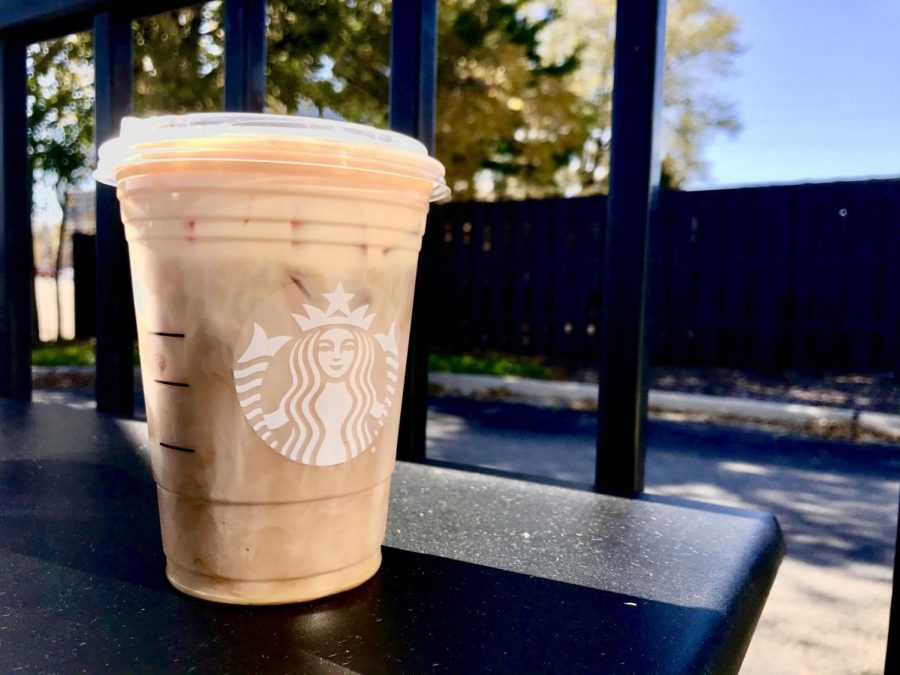Caffeine, alcohol affect students
Tea, coffee and energy drinks contain varying levels of caffeine, a stimulant that triggers mental alertness.
October 20, 2019
College students love two specific drugs: caffeine and alcohol. Many students will inevitably find themselves indulging in one or both. Students should determine for themselves the individual costs and benefits associated with consistent consumption of caffeine or alcohol.
Caffeine
Caffeine was consumed by 92% of college students within the past year, and the average daily consumption was 173 mg per day, according to a 2019 study published in The American Journal of Clinical Nutrition. For comparison, an eight-ounce cup of brewed coffee contains 95-165 mg of caffeine, while an eight-ounce energy drink contains 27-164 mg of caffeine, according to an April 2017 Mayo Clinic article.
Although each person metabolizes caffeine differently, the FDA has suggested that 400 mg of caffeine, or about four cups of coffee, does not lead to any negative side effects, according to a December 2018 FDA article.
The convenience of buying caffeine products make it a go-to choice for boosting performance during mental lulls.
“[Caffeine] is a stimulant that my brain needs to be doing so I don’t get sidetracked,” first-year acting major Ace Jones said. “When I’m trying to do homework, I’ll usually stop in the middle and be like, ‘I need a Red Bull,’ so I’ll go to the fridge and get one and then I’ll get my homework done.”
If students can stay within the caffeine range of about four cups of coffee or Red Bull a day, they can limit the negative side effects that come with consuming caffeine. It seems having too much caffeine does have observable side effects that might be a problem.
“[One problem is] losing decent sleep because if I drink coffee and get what I have to do done, that effect will still be with me overnight,” first-year biology major Jaylen Mason said. “So, I’ll probably stay up a little longer than what I need to.”
Other side effects from ingesting too much caffeine include increased heart rate, upset stomach and nausea; concentrated amounts of caffeine can be in powder or liquid form, and if consumed can even lead to death, according to the FDA article.
Caffeine can be beneficial if consumed in moderation. Another drug that can be beneficial in moderation is alcohol.
Alcohol
Alcohol is a widely accepted drug that has a large presence within the college sphere. Having a few drinks after a long day of studying can help to relax and unwind. Recuperation is an important aspect in maintaining engagement at school. However, alcohol consumption can be a detriment to academic engagement and overall health if it’s abused.
Over half of full-time college students drank alcohol within the past month, and 34.8% of those who drank engaged in binge drinking, according to an August National Institute on Alcohol Abuse and Alcoholism article.
“I feel [excessive drinking] is more common among [first-years] and sophomores,” Jacob Edwards, senior environmental engineering technology major, said. “I think juniors and seniors want to get out of college and into the workforce, so they take more responsibility.”
Binge drinking is typically defined as five or more drinks for men and four or more drinks for women within a two-hour span, according to an October 2018 CDC article.
One out of every six adults binge drink around four times every month and consume around seven drinks per binge, according to the CDC article. Binge drinking is more commonly found in adults aged 18-34 years old, and four out of every five binges are from men, according to the CDC article.
The amount of alcohol consumed per day is suggested as two drinks for men and one drink for women, according to a January 2018 CDC article.














